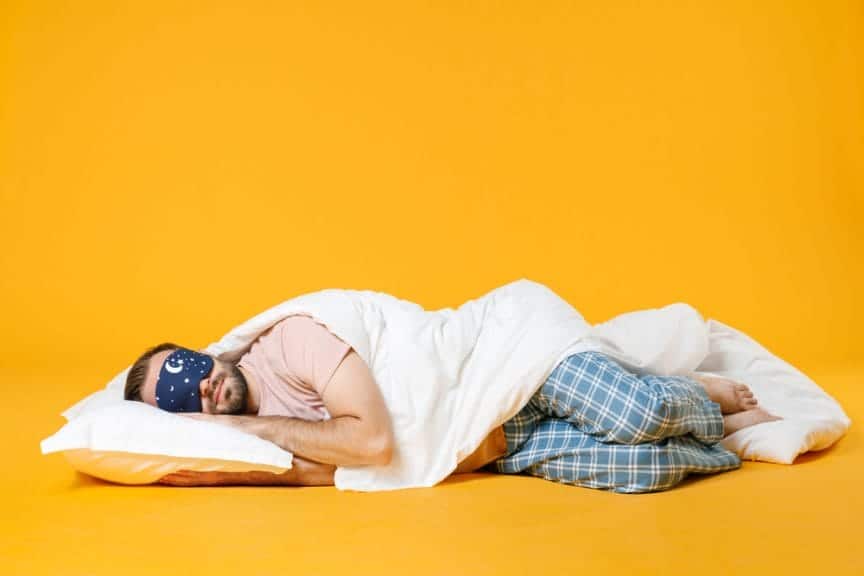We’ve all been there: it’s late at night and you want nothing more than to sleep, but you find yourself staring at the ceiling, unable to calm your racing mind enough to keep your eyes closed. And once you do fall asleep, you wake up the next morning feeling more tired than you were when you laid down! This dilemma is likely a sign of poor sleep hygiene; no matter how many hours you sleep, your sleep quality is low due to internal and external factors. A good night’s sleep is crucial to our mood, brain function, and overall health. By engaging in unhealthy habits, we prevent our body from performing the best it can throughout the day.
Why Is Sleep Important?
You may think sleep is just downtime, but it’s so much more than that. It’s biologically necessary. Sleep is just as important to your health as a balanced diet and exercise, according to News in Health. When you’re sleeping, your brain shifts gears and signals all parts of your body to begin its repairs, from draining toxins out of your brain to keeping your immune system strong.
Now that you have a general understanding of why sleep is so beneficial to your help, here are some strategies you can try tonight before bed:
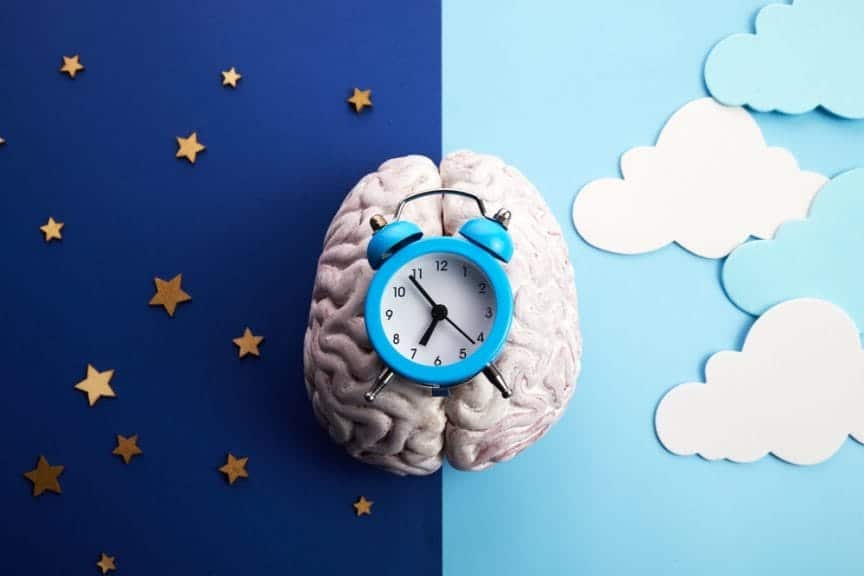
How to Get a Good Night’s Sleep
1. Avoid alcohol and caffeine
After a few drinks, many people get sleepy; that’s the depressing effects of alcohol kicking in. While you may pass out quickly after a wild night at the bars, the quality of your sleep is drastically reduced after you consume alcohol.
SleepFoundation.org breaks down the specifics of how alcohol impacts your sleep: a low amount of alcohol, defined as less than two drinks for men and less than one for women, decreases your sleep quality by 9.3%; a moderate amount, two drinks for men and one for women, decreases sleep quality by 24%; a high amount, more than two drinks for men and more than one for women, decreases sleep quality by 39.2%. The site states that livers break down alcohol at a slow rate, so although it may take you less time to fall asleep after drinking, you’re likely to experience more disruptions throughout the night. If you’re going to drink alcohol, give your body enough time to metabolize the alcohol so you can sleep better.
Not only does caffeine keep you alert during the day, but it can also keep you up at night. As I discussed in my last article, consuming large amounts of caffeine throughout the day can disrupt your sleep: the compound blocks the “I’m tired” signals from entering your brain, which can be helpful if you have an early morning exam, but it’s a nuisance when you just want to rest. Avoid caffeine in the afternoon to ensure you’ll be able to sleep through the night.
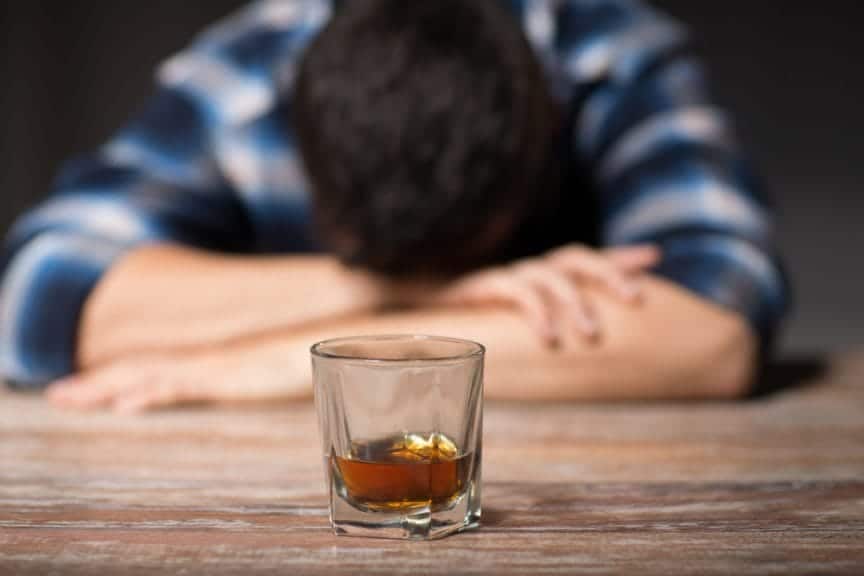
2. Try the “Sleepy Girl” Mocktail
Instead of a cocktail before bed, try this viral “sleepy girl” mocktail! You may have seen the drink on TikTok within the last year; it’s made of tart cherry juice, magnesium, and prebiotic soda, and users have praised its relaxing effects, making it one of the best before-bed beverages (say that five times fast!).
Cherry juice contains melatonin and tryptophan (the amino acid in turkey that makes you want to nap after a Thanksgiving feast), according to Registered Dietician Nutritionist (RDN) Anne Cording. Magnesium powder, she continues, helps regulate the chemicals in our brains that help us sleep. Skeptics claim that it’s the placebo effect that makes the drink so popular; others say that the mocktail doesn’t have enough milligrams of the main ingredients to fully induce sleep, just to relax drinkers. My advice? Try the mocktail for yourself to determine if the hack is right for you.
3. Exercise regularly
Johns Hopkins Medicine recommends engaging in at least thirty minutes of aerobic exercises a day in order to see a difference in your sleep quality. When you exercise, your core body temperature rises; when it begins to fall in the time after a workout, this is when you’ll start to feel sleepy. Also, your brain releases endorphins, or “happy chemicals,” during exercise; after an hour or two, when the endorphin levels decrease, you’ll feel relaxed and ready for sleep. Walking, running, swimming, and biking are all examples of cardio activities that will increase your slow-wave sleep, which is essential in allowing your body to make those necessary repairs I mentioned earlier.
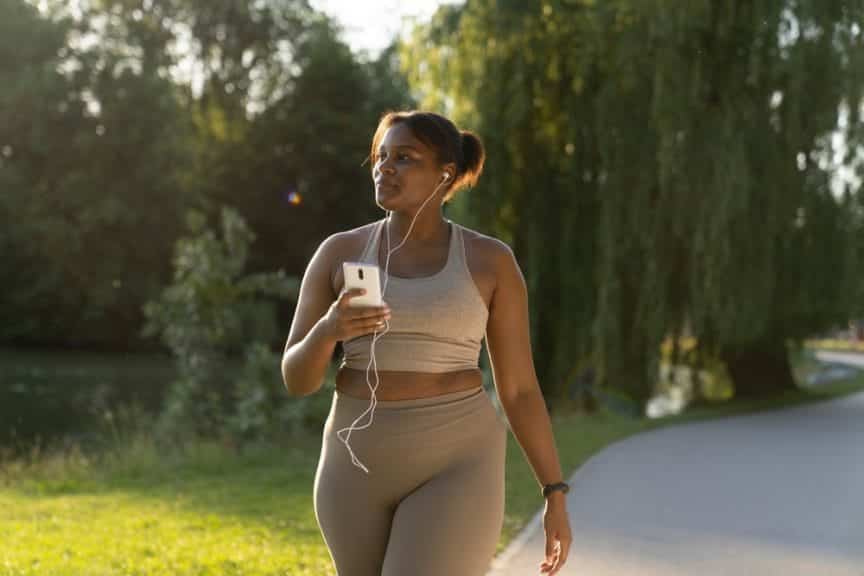
4. Put your screens away
“Just five more minutes on TikTok, then I’ll go to sleep.” It’s a familiar promise we make to ourselves while laying in bed on our phones, scrolling through social media for some late night entertainment. Rarely do we ever stop at just five more minutes.
In my article about screen time, I addressed how spending too much time on our devices negatively impacts our sleep quality. Biologically, the blue light from our screens disrupts the production of melatonin, a hormone that regulates sleep and signals our body that it’s time for bed. Putting screens away for at least one hour before going to sleep will prevent this issue. For instance, rather than watching a YouTube video to relax your mind, try coloring, journaling, or meditating.
5. Create a sleep schedule
As an adult, I often find myself fighting the idea of a bedtime; that nonsense ended when I was a kid! However, setting a regular time to go to sleep and wake up can do wonders for those struggling to catch some Z’s. The CDC recommends establishing a relaxing bedtime routine to get yourself ready to sleep. Keep your room at a comfortable temperature and, depending on your needs, use blackout curtains and a white noise machine to create the perfect sleepy time setting.
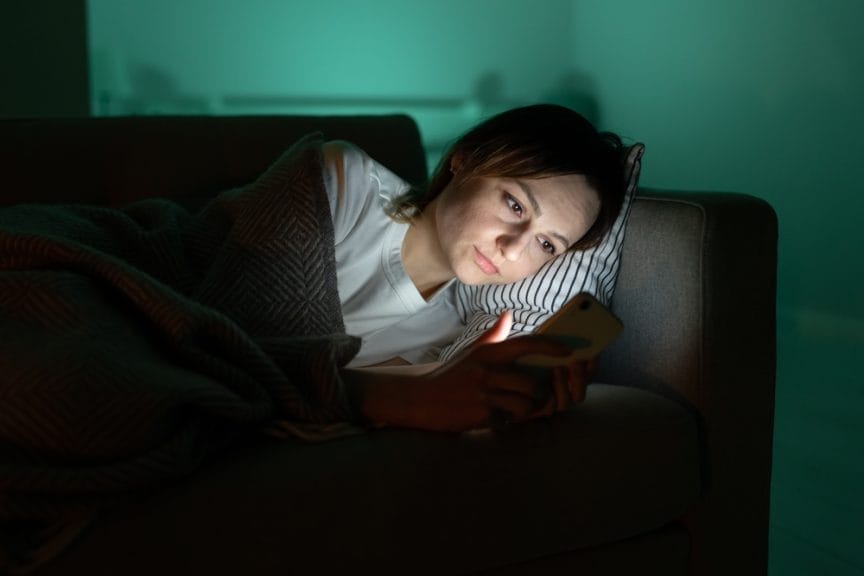
It’s okay to have a night where you stay up late or just don’t sleep right, because you can make it up the next day with a nap or an earlier bedtime. However, when the inability to sleep becomes an everyday occurrence, there may be a need for some lifestyle changes. Including at least one of these tips in your daily routine will improve your sleep hygiene and ensure you’re the healthiest you can be.


